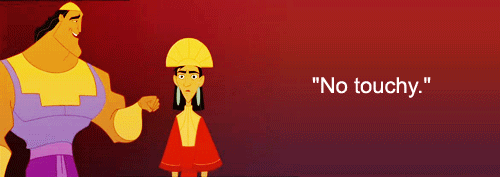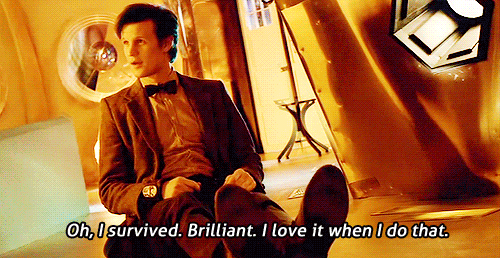Arthritis Humor and the Therapeutic Powers of Laughter and Social Media
Last week I started a GIF based Tumblr blog called “Arthritis Humor.“
My goal for this blog is to help patients with autoimmune arthritis (and other chronic illnesses) transcend their experiences via humor, and feel less alone by connecting to others through shared laughter.
Why find the humor in arthritis?
As a healthcare professional and patient, I will concede that there is nothing intrinsically funny about either category of arthritis: osteoarthritis (“wear and tear” arthritis, the kind associated with aging) or autoimmune arthritis forms such as rheumatoid arthritis (whereby one’s own immune system mistakenly attacks the lining of one’s joints and other body systems as well).

However, as a patient with rheumatoid arthritis (RA), I believe that finding humor can have the following benefits:
-
Sharing a moment of laughter helps patients connect to each other and feel less alone.
I received the following reaction from a friend with rheumatoid arthritis, which highlights this concept: “I started laughing, which I find is important to do, but hard at times when you live with a disease that isn’t so funny. It put a smile on my face for sure. There is a lot to be said for knowing someone who just gets it.”

2. It can help you feel a sense of power and transcendence over your pain.
Finding humor isn’t easy when battling a systemic illness. Most peoples’ reactions to pain and the idea of their immune systems attacking them run along the lines of fear, sadness, grief, and even disgust. I’ve been there myself, make no mistake of it. For some patients with autoimmune arthritis, the physical pain is so searing and debilitating that it is hard to focus on anything else.
How powerful, then, is a smile or a laugh in the face of those low moments? What great strength there is in moments of transcendence, moments where we say, “You may have my joints, but you don’t have my attitude, you don’t have my outlook on the situation, not today?” In that sense, a smile or a laugh becomes more than something light, free and easy; it gains weight, it becomes something substantial, a force to be reckoned with.

Victor Frankl’s stance on humor during difficult times is particularly relevant here, as he describes the role of humor during his experiences in Nazi concentration camps: “Humor was another of the soul’s weapons in the fight for self-preservation. It is well known that humor, more than anything else in the human make-up, can afford an aloofness and an ability to rise above any situation, even if only for a few seconds.” – Man’s Search for Meaning
3. Research supports the therapeutic and healing benefits of laughter and humor.
It turns out that many researchers have taken a formal look at the healing nature of laughter and humor. While attending the American Occupational Therapy Association’s annual conference, I discovered The Association for Applied and Therapeutic Humor. Additionally, many research articles explore and detail the clinical or scientific effects of humor in a healthcare interactions.
While most research focus on the effects of humor on the individual (to release endorphins, for example), or between two individuals in “real time” (such as during a therapy session), I’m interested in how digital and social media enable people to connect through shared humor (and beyond) over vast geographic distances.
Conclusion
Social participation can be so easily limited when one has a chronic illness, yet social media enables people to form substantial connections with very limited energy expenditure. Through my Arthritis Humor Tumblr blog, I’ve discovered a thriving community of patients who bond with others through sharing their daily struggles and triumphs over chronic illness.
I’m interested in more formally considering the many advantages and drawbacks of patients connecting through social media (from humor and beyond). Do you know of any other ways in which people use humor to transcend illness, or use social media to connect about health issues? Let me know in the comments section!
No Comments
wholemebe
Very interesting .Adding to the Enthusiastic Life is my blog – A Humorous look at aging- growing older and growing better. Nevertheless Cheryl we both share the enthusiasm of living a fun filled ,fulfilling and fruitful life